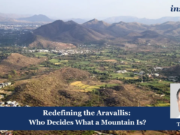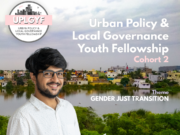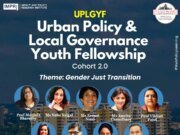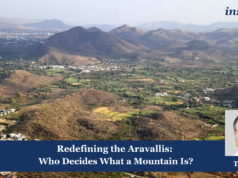Shreya Mandal
Introduction
In his influential article on the relationship between medical language and disease, anthropologist Byron Good noted:
“The meaning of a disease category cannot be understood simply as a set of defining symptoms. It is rather a ‘syndrome’ of typical experiences, a set of words, experiences, and feelings which typically ‘run together’ for the members of a society. Such a syndrome is not merely a reflection of symptoms linked with each other in natural reality, but a set of experiences associated through networks of meaning and social interaction in a society. This conception of medical semantics directs our attention to the use of medical discourse to articulate the experience of distinctive patterns of social stress, to the use of illness language to negotiate relief for the sufferer, and thus to the constitution of the meaning of medical language in its use in a variety of communicative contexts.” (1977:27)
Polycystic Ovarian Syndrome (PCOS) is a complex condition that affects a significant number of women globally, and has been on the rise in India since the liberalisation of its economy in 1991
(Pathak, 2020). This condition not only affects physical health but also has profound implications on psychological well-being and their social identity. As women navigate the challenges posed by PCOS, they encounter a unique intersection of health, identity, and societal expectations that shapes their experiences in different institutions such as education, marriage, among others.
This is more than just a medical condition; it’s a lived experience deeply intertwined with our society. Imagine facing the challenges of PCOS while also grappling with the subtle (and not-so-subtle) expectations shaped by caste, class, and gender. These layers dictate not only access to crucial healthcare but also how women internalize their illness. The result? Feelings of alienation, stigma, and an often unspoken struggle.
Current research tends to focus on the biomedical, overlooking the rich tapestry of subjective narratives and sociocultural contexts that truly define PCOS for so many. This article examines Polycystic Ovary Syndrome (PCOS) in India, arguing that it is not merely a biomedical condition but a socially constructed illness deeply influenced by cultural expectations, medical practices, and policy shortcomings.
Despite its high prevalence, particularly in urban India, current approaches often medicalize the female body, reducing complex lived experiences to a set of clinical symptoms, and overlooking the psychosocial distress caused by stigma and gendered norms. This has led to a fragmented healthcare system. Drawing on frameworks like the political ecology of health, intersectionality, and embodiment, this analysis advocates for a participatory action research (PAR) approach.
My Positionality as a Researcher
My motivation to explore the interplay between health and systems is deeply rooted in my personal experiences and observations, especially around how systemic conditions and sociocultural discourses shape the lived experiences of women living with Polycystic Ovary Syndrome (PCOS). I have seen people around me pop pills, visit countless gynaecologists, take numerous trips to dieticians’ offices trying to lose weight just to manage the symptoms of PCOS, and still grapple with body image concerns, fat shaming, and societal pressures to conceive. As a Dalit woman and first-generation researcher in India, I have a profound commitment to understanding this dynamic.
I am also acutely aware of my privileges of being a cis-gender, heterosexual, able-bodied person, which have enabled me timely access to the opportunities. However, I have also witnessed some of the systemic barriers that hinder access to quality education and healthcare for individuals from disadvantaged backgrounds. The intersectionality of caste, gender, socioeconomic position, and health is hence critical in the Indian context, where societal norms often dictate the opportunities available to women. My attempt is to uncover how these discourses influence women from different social locations living with PCOS. By examining these dynamics and social processes, I hope to inform policies that promote equitable access to resources and support systems for all. The aspiration is to contribute to a more inclusive dialogue that challenges dominant narratives around femininity and health.
Social Construction of PCOS: A Complex Interplay of Medicalization and Sociocultural Discourse
Social constructionism posits that knowledge and understanding are not merely reflections of an objective reality but are constructed through social interactions and cultural contexts. It emphasizes that the meanings attached to health conditions like PCOS are not inherent but are shaped by societal norms, cultural narratives, and historical contexts. Let us begin with distinguishing between “disease” and “illness.” A disease is the biophysiological condition; which is also most commonly associated with PCOS, like the hormonal imbalance, the insulin resistance, the cysts on the ovaries. An illness, by contrast, is the social meaning and lived experience of that condition, for example, the stigma, the emotional turmoil, the disruption to one’s identity. While the disease of PCOS resides within the body, the illness is constructed by society, defined by its norms, and judged by its standards.
A social constructionist lens allows us to explore how women construct their identities in response to societal expectations and resist dominant narratives that may marginalize or stigmatize their experiences. This approach allows for a nuanced understanding of how identity and resistance are dynamically constructed in relation to health within specific social settings.
The social construction of PCOS can also be understood by taking a look at the history of its changing definitions. Formally brought into the modern medical lexicon in 1935 by American gynecologists Stein and Leventhal, described by a triad of amenorrhea (absent periods), hirsutism, and enlarged, polycystic-appearing ovaries (Kitzinger & Willmott, 2002, p. 349). The “disease” of PCOS is not a fixed biological fact but a socially and scientifically negotiated concept. This consensus-building started with the NIH Criteria (1990), creating a relatively narrow, “classic” definition of PCOS. With advancements in ultrasound technology and hormone concentration studies, the approach for diagnosis has become highly advanced throughout time. The Rotterdam criteria, established in 2003, are the most extensively used and internationally accepted method for diagnosis. To confirm the diagnosis of PCOS, one should have more than 2 symptoms of the following: clinical or biochemical elevation of androgen levels/hyperandrogenism, anovulation/oligomenorrhea/oligo-ovulation (fewer than 6 to 8 menstrual cycles per year), and/or polycystic ovaries on ultrasound (Wang & Mol, 2017), as well as the exclusion of other possible endocrine-related disorders (Dokras et al., 2017, p. 1383). Both the Rotterdam and the androgen excess criteria are currently used in India for diagnosing PCOS. As per the Rotterdam criteria, the prevalence of PCOS was twenty two percent in Mumbai and ten percent according to the Androgen Excess Society criteria (Ganie et al., 2019).
Although there is tremendous heterogeneity in how symptoms of PCOS manifest in individuals, Women with PCOS typically face a combination of dermatological issues (acne, androgenic alopecia, hirsutism, skin discoloration), obesity, menstrual irregularities (complete absence of menstruation, delays, or heavy bleeding), and polycystic ovaries (Gainder & Sharma, 2019). Additionally, the long-term consequences of PCOS are associated with reproductive health challenges (e.g., impaired fertility, complications during pregnancy), metabolic syndrome (e.g., cardiovascular disease, type II diabetes), sleep apnea, endometrial cancer, and psychological problems (Chandrasekaran & Sagili, 2018; Trent & Gordon, 2020).
Treatment options for PCOS typically include various components due to the disorder’s effects on multiple systems and range from treating reproductive health, dermatological concerns to correlated issues such as insulin resistance (Parker et al., 2020). In addition, treatment pertains to ongoing symptom management and prevention of long-term health consequences such as the onset of metabolic syndrome. The International Guideline for the Assessment and Management of PCOS proposes 166 practice recommendations to treat PCOS and include categories related to reproductive, metabolic, and psychological health. However, combined oral contraceptive pills are the first-line pharmacological treatment for menstrual irregularities and symptoms associated with hyperandrogenism, whereas metformin is prescribed to address metabolic complications. To address infertility, Letrozole is the first-line pharmacological intervention, followed by gonadotropins, and lastly, IVF when other methods have been unsuccessful. Lifestyle changes such as dietary and exercise interventions are recommended for weight management, optimal general health, hormonal outcomes, and improving quality of life. Cosmetological procedures to address acne, hirsutism, and alopecia are tailored to individuals’ needs and commonly consist of topical ointments to treat acne and hair removal treatments to address hirsutism. Psychological counseling is highly recommended for individuals coping with associated psychosocial stressors and decreased health-related quality of life, especially in the presence of any comorbid psychiatric illnesses (Teede et al., 2018).
Despite the medical advancements in PCOS management, Vleming (2018) indicates that women’s experiences are often minimized and invisibilized in biomedical contexts (Vleming, 2018). PCOS is considered a disorder that needs to be corrected and there is a whole medical industry built around it. The meaning of PCOS symptoms is thus filtered through this specific cultural lens, transforming clinical signs into potent symbols of social and personal failure. The treatment paradigm of PCOS often takes a rigid pathway, fundamentally framing the female body around its reproductive capacity. It either attempts to induce ovulation or manage symptoms and mitigate long-term risks using procedures like drugs, hormone therapy, and in-vitro fertilization. This binary approach dismisses the personhood of the woman and reduces them to the traditional feminine ideal overlooking mental health or body image as secondary concerns. The very language used in medical and social discourse such as “excess” androgen, “excess” hair, “male-pattern” baldness is not neutral. It is inherently judgmental, framing the female body as something that has become unruly, too “masculine,” and in need of correction. This can lead to a fragmented patient experience. This disconnect between the clinical management of the disease and the lived experience of the illness is a direct consequence of the medicalization process.
Sanchez (2020) notes that individuals with PCOS have been institutionally marginalized due to their underrepresentation in research compared to other chronic illnesses of equivalent severity, a lack of funding allocated to studying PCOS, a dearth of cultural and gender-sensitive care, and high stigmatization as symptoms of the disorder challenge societal norms of beauty, femininity, and gender identity (Sanchez, 2020).
In India, the indigenous health frameworks view the body as the microcosm of its universe, mostly premised upon an ecological model of health (Pathak, 2020). Although the etiology of PCOS is unclear, the syndrome is considered to manifest through the interaction of genetic, environmental, metabolic, and neuroendocrine systems (Trent & Gordon, 2020). It is therefore considered a sign of a disturbed relationship between the body, society, and the world. In India, where cultural norms around femininity and body image are particularly pronounced, women with PCOS often face stigma and discrimination that can exacerbate their health challenges (Bordo, 1993). A very recent study by Anusha and her colleagues (2024) explored dietary habits and awareness regarding PCOS among young women aged 18-25 in Tamil Nadu. Their findings indicate a lack of knowledge about healthy eating and hygiene practices among participants, suggesting a need for educational interventions to improve management strategies for PCOS (Anusha, et al., 2024).
The pressure to conform to societal ideals of beauty and success can lead to significant psychological distress, impacting overall well-being. Understanding the lived experiences of women with PCOS requires an examination of the sociocultural and institutional discourses that influence their health and identity. The political ecology of health framework emphasizes how health outcomes are not merely biological but are deeply embedded in social contexts shaped by power dynamics and systemic inequalities (Petteway et al., 2019). Furthermore, the concept of embodiment highlights how women’s physical experiences of PCOS are intertwined with their identities and societal perceptions (Krieger, 2005). Petteway et al. (2019), in their paper highlight how place and embodiment intersect to influence health outcomes, emphasizing how social and environmental experiences shape physiological functioning and health, and the importance of considering the cumulative and dynamic nature of embodiment (Petteway et al., 2019). This is important to consider while exploring how women with PCOS navigate through their embodied interaction with the world around her, while contending with societal norms related to femininity and health. Therefore, it will not only illuminate diverse individual experiences but also highlight systemic issues that need urgent addressing.
However literature review reveals several critical gaps that require attention to enhance understanding and improve healthcare. One significant gap is the limited qualitative research; most existing studies focus on quantitative data regarding the prevalence and clinical features of PCOS, neglecting the personal experiences, psychological and social challenges, and coping mechanisms of women living with this condition. Most existing studies focus on prevalence and clinical aspects rather than the subjective experiences of these women in relation to spaces, leaving a void in understanding how PCOS affects their daily lives, relationships, and mental health (Ramasamy et al., 2021; Ghosh et al., 2023; Jaswal et al., 2023). Additionally, there is a need for more culturally sensitive research that considers the diverse socio-economic backgrounds and regional differences across India. Current studies often employ standardized diagnostic criteria without accounting for local cultural perceptions and practices related to health and femininity (Genie et al., 2021; Patil & Mude, 2023). The medical gaze often leads to erasure of the sociopolitical narrative around PCOS, and lost with it are the deeply personal stories of women living with PCOS.
Furthermore, while some research has begun to address lifestyle modifications, there is insufficient evidence on the effectiveness of community-based interventions that incorporate local beliefs and practices (Bulbuli et al., 2024; Aljuaid et al., 2023). Addressing these gaps could significantly enhance the understanding of PCOS among Indian women and inform better healthcare practices and policies. As highlighted in the literature review, existing research provides valuable insights into the medicalization of health conditions and their gendered construction within medical sciences. It also underscores the importance of understanding polycystic ovarian syndrome (PCOS) through a socio-cultural lens rather than limiting it to a biomedical framework. However, much of this work is rooted in Western contexts, leaving a significant gap in exploring PCOS within the Indian socio-cultural milieu. In India, there is a notable scarcity of studies examining PCOS from a non-biomedical perspective, particularly those focusing on the lived experiences of women diagnosed with the condition.
Also, limited attention has been given to how these experiences are shaped by the perspectives of “experts” such as gynecologists and other clinicians. This gap underscores the need for research that not only centers the voices of women living with PCOS but also integrates the viewpoints of medical professionals to provide a holistic understanding of the condition within the Indian context. A cross-sectional study highlighted that a majority of women diagnosed with PCOS were young and from higher socio-economic backgrounds, yet their satisfaction with treatment efficacy was relatively low, ranging from 17.3% to 34.2% (Kaur et al., 2023). This suggests a gap in effective management strategies within the healthcare system. Moreover, there is a pressing need for increased awareness and education about PCOS among both healthcare providers and patients to improve early diagnosis and treatment outcomes (Kaur et al., 2023). Moreover, understanding clinicians’ approaches to PCOS treatment is crucial for comprehending the broader stakeholder perspectives in managing this condition.
India’s Public Health Response Remains Underprepared
Despite the escalating prevalence of PCOS and its profound impact on women’s health, India’s public health system remains largely unprepared to address the crisis. The response is characterized by a significant policy vacuum, a reactive rather than proactive approach, and systemic gaps in knowledge, infrastructure, and public awareness. This inaction has effectively offloaded the burden of care onto a fragmented private sector and a burgeoning ecosystem of non-state actors.
The lack of a coherent national strategy has created deep-seated gaps within the public health system, such as inadequate Healthcare Provider (HCP) Knowledge of the diagnostic criteria and management practices for PCOS which leads to misdiagnosis, delayed diagnosis, and the perpetuation of dismissive attitudes towards patients. Public health facilities, especially in rural and semi-urban areas, often are ill-equipped for PCOS management, which hinders equitable and affordable healthcare for all. Also, there is a near-total absence of government-led public awareness initiatives to educate the population about PCOS, its symptoms, and its long-term risks, which allows stigma and misinformation to flourish.
Why PAR?
Despite research efforts, the quantitative-positivist paradigm dominates social science research and subsequently separates itself from the community voice and lived experience. Research and Policy agendas are often set by professionals, bureaucrats and academicians, overshadowing the needs and experiences of the individuals for whom the solutions are being developed.
A Participatory Action Research framework can rectify this by bringing primary stakeholders on board as co-researchers, democratising knowledge creation and bridging the gap between policy and practice, therefore providing a unique opportunity to combine public policy, qualitative inquiry, and co-creating action-focused solutions. This kind of field-engaged research with policy outcomes develops the space for research to have an impact beyond academia – to community advocacy, psychosocial practices, and even policy dissemination and dialogue.
As a first-generation doctoral student from a historically marginalized community, I am committed to building an ethical, socially-engaged research space that highlights the voices of communities that have been rendered invisible. My academic training and work in the field have equipped me with a lens to approach research not just as knowledge production, but as a community-driven and co-created platform of engaged action. Establishing fellowship in deeper methodological engagement with Participatory Action Research would sharpen my investing in translating theory into praxis.
Participatory Action Research, including techniques like photovoice, can also be a powerful method to document the embodied experiences of women with PCOS, which provides the methodological foundations and ethical framework to position under-represented voices as co-creators of knowledge rather than mere research subjects. It could be powerfully applied to the study of Polycystic Ovary Syndrome (PCOS), especially given the common experience among women of feeling dismissed or misunderstood by the healthcare system. It places the participants’ at the center rather than academicians and medical professionals’ agenda.
Additionally, since the experience and management of PCOS can differ markedly across cultural backgrounds and standard care often neglects these ethnic and cultural nuances, a Community-Based Participatory Action Research (CBPAR) approach could be used to design policy interventions that are culturally relevant and sustainable. It prioritizes an equitable partnership between researchers and community members in all phases of the research, resulting in health promotion programs that incorporate local knowledge, address specific cultural barriers, and are therefore more likely to be effective, and empowering for the community.
Conclusion
This article suggests that a PAR approach to PCOS research responds to a significant gap in the literature, and between the embodiment and psychosocial components of the illness experience of PCOS, especially within the Indian academia and policy discourse. It subverts the current trend of medicalizing PCOS, and the agency women living with PCOS have over their health narratives through socio-cultural and institutional factors. Also, the article includes pragmatic implications for healthcare policy, as findings from this research could impact culturally sensitive health interventions, and training of health professionals on structural violence in healthcare.
Finally, the study centers women’s voices, and the perspectives and experiences of key stakeholders. It intends to inform policy changes within healthcare settings by advocating for a more nuanced understanding of women’s health that considers both individual narratives and broader socio-political contexts. The findings may also contribute to broader discussions on gender, intersectionality, and health equity.
In conclusion, tackling the PCOS crisis in India requires more than just identifying problems, inventing new medicines or diagnostic tools. It demands a critical re-examination of how society defines and values womanhood, and a public health policy framework that recognizes women’s health not only as a fertility-related concern, but as a central pillar of national well-being. The challenge is not only to treat the syndrome but to transform the system that has allowed it to become a silent epidemic. It’s time to move beyond neglect and towards participatory solutions that empower women and transform the discourse around this prevalent condition.
References
- Aljuaid, A., Sindi, H. A., Alhadi, W., Abu Zayied, I. A., Althobaiti, L., & Imran, I. (2023). Knowledge, Attitude, and Practice of Lifestyle Modifications Among Saudi Women Diagnosed With Polycystic Ovary Syndrome (PCOS). Cureus, 15(11), e49398. https://doi.org/10.7759/cureus.49398
- Anusha, R., Christuraj, P.A., Sudhaveni, U., Nasiya, H., & Karthick, E.E. (2024). Evaluation on PCOS in Hypothyroidism among Young Females in the Age Group of 18-25 Years: A Study from Tamilnadu, India. International Journal of Innovative Science and Research Technology (IJISRT).
- Bordo, S. (1993). Unbearable Weight: Feminism, Western Culture, and the Body. University of California Press.
- Bulbuli, A.S., Kage, V., Hukkeri, M., & Bellad, M. (2024). Effect of Callisthenic Exercises vs Yoga on Health Related Quality of Life, Lipid Profile, Anthropometric11 Measurements and ultrasonography Findings in Polycystic Ovarian Syndrome: A Research Protocol. JOURNAL OF CLINICAL AND DIAGNOSTIC RESEARCH.
- Chandrasekaran, S., & Sagili, H. (2018). Metabolic syndrome in women with polycystic ovary syndrome. The Obstetrician & Gynaecologist, 20(4), 245–252. https://doi.org/10.1111/tog.12519
- Charmaz, K. (2017). Constructivist grounded theory. The Journal of Positive Psychology, 12(3), 299–300. https://doi.org/10.1080/17439760.2016.126261212
- Crenshaw, K. (1989) “Demarginalizing the Intersection of Race and Sex: A Black Feminist Critique of Antidiscrimination Doctrine, Feminist Theory and Antiracist Politics,” University of Chicago Legal Forum: Vol. 1989, Article 8. Available at: https://chicagounbound.uchicago.edu/uclf/vol1989/iss1/8
- Dokras, A., Saini, S., Gibson-Helm, M., Schulkin, J., Cooney, L., & Teede, H. (2017). Gaps in knowledge among physicians regarding diagnostic criteria and management of polycystic ovary syndrome. Fertility and sterility, 107(6), 1380–1386.e1. https://doi.org/10.1016/j.fertnstert.2017.04.011
- Gainder, S., & Sharma, B. (2019). Update on Management of Polycystic Ovarian Syndrome for Dermatologists. Indian dermatology online journal, 10(2), 97–105. https://doi.org/10.4103/idoj.IDOJ_249_17
- Ganie, M. A., Chowdhury, S., Suri, V., Joshi, B., Bhattacharya, P. K., Agrawal, S., Malhotra, N., Sahay, R., Rozati, R., Jabbar, P. K., Sreenivas, V., Sriwastva, M., Wani, I. A., Singh, S., & Sharma, R. S. (2021). Evaluation of the Prevalence, Regional Phenotypic Variation, Comorbidities, Risk Factors, and Variations in Response to Different Therapeutic Modalities Among Indian Women: Proposal for the Indian Council of MedicalResearch-Polycystic Ovary Syndrome (ICMR-PCOS) Study. JMIR research protocols, 10(8), e23437. https://doi.org/10.2196/23437
- Ganie, M. A., Vasudevan, V., Wani, I. A., Baba, M. S., Arif, T., & Rashid, A. (2019). Epidemiology, pathogenesis, genetics & management of polycystic ovary syndrome in India. The Indian journal of medical research, 150(4), 333–344. https://doi.org/10.4103/ijmr.IJMR_1937_17
- Ghosh, T., Pal, B., Maji, S., & Goswami, M. (2023). Polycystic Ovarian Syndrome (PCOS) among young adult women: an anthropological insight. Papers on Anthropology.
- Good, B. J. (1977). The heart of what’s the matter: The semantics of illness in Iran. Culture, Medicine, and Psychiatry 1:25–58. doi: 10.1007/BF00114809.
- Jaswal, R., Tripathi, S., Singh, D., Gupta, N. L., Chauhan, H. S., Kaur, S., Sharma, S., & Bhattacharya, S. (2023). Patients’ perception about polycystic ovarian syndrome (PCOS) in Sub-Himalayan region of India-A facility-based cross-sectional study. Journal of family medicine and primary care, 12(9), 1837–1842. https://doi.org/10.4103/jfmpc.jfmpc_2249_22
- Kaur, I., Singh, A., Suri, V., Kishore, K., Rana, S. V., Sahni, N., & Bhattacharya, S. (2023). Treatment seeking behavior among patients with polycystic ovarian syndrome (PCOS)-A cross-sectional study from Northern India. Journal of education and health promotion, 12, 194. https://doi.org/10.4103/jehp.jehp_102_23
- Kitzinger, C., & Willmott, J. (2002). ‘The thief of womanhood’: women’s experience of polycystic ovarian syndrome. Social science & medicine (1982), 54(3), 349–361. https://doi.org/10.1016/s0277-9536(01)00034-x
- Krieger, N. (2005). “Embodiment: A Conceptual Glossary for Epidemiology.” Journal of Epidemiology & Community Health, 59(5), 350-355.
- Ligita, T., Harvey, N., Wicking, K., Nurjannah, I., & Francis, K. (2020). A practical example of using theoretical sampling throughout a grounded theory study: a methodological paper. QualitativeResearch Journal, 20(1), 116–126. https://doi.org/10.1108/QRJ-07-2019-0059/FULL/PDF
- Parker, M., Warren, A., Nair, S., & Barnard, M. (2020). Adherence to treatment for polycystic ovarian syndrome: A systematic review. PLoS ONE, 15(2), e0228586–e0228586. https://doi.org/10.1371/journal.pone.022858
- Pathak, G. S. (2020). Polycystic ovary syndrome, medical semantics, and the political ecology of health in India. Anthropology & Medicine, 27(1), 49-63. https://doi.org/10.1080/13648470.2018.1544606
- Patil, S., & Mude, G.S. (2023). Awareness regarding knowledge associated with polycystic ovarian syndrome (PCOS) among women in Wardha district- A cross- sectional study. F1000Research.
- Petteway, R., Mujahid, M., & Allen, A. (2019). Understanding Embodiment in Place- Health Research: Approaches, Limitations, and Opportunities. Journal of urban health : bulletin of the New York Academy of Medicine, 96(2), 289–299. https://doi.org/10.1007/s11524-018-00336-y
- Ramasamy, V. A., Garad, R. M., & Boyle, J. A. (2021). A Comprehensive PCOS Research andGuideline Translation Program to Improve Practice. Seminars in reproductive medicine, 39(3-04), 161–166. https://doi.org/10.1055/s-0041-1733916
- Sanchez N. (2020). Women with Polycystic Ovary Syndrome: A Marginalized Population in the United States. Health & social work, 45(1), 40–46. https://doi.org/10.1093/hsw/hlz033
- Teede, H. J., Misso, M. L., Costello, M. F., Dokras, A., Laven, J., Moran, L., Piltonen, T., Norman, R. J., & International PCOS Network (2018). Recommendations from the international evidence-based guideline for the assessment and management of polycystic ovary syndrome. Human reproduction (Oxford, England), 33(9), 1602–1618.https://doi.org/10.1093/humrep/dey256
- Trent, M., & Gordon, C. M. (2020). Diagnosis and Management of Polycystic Ovary Syndrome in Adolescents. Pediatrics, 145(Suppl 2), S210–S218. https://doi.org/10.1542/peds.2019-2056J
- Vleming, K. (2018). “You Think You’re the Only One”: Comparing Descriptions and Lived Experiences of Polycystic Ovarian Syndrome. Anthropologica, 60, 507 – 522.
- Wang, R., & Mol, B. W. (2017). The Rotterdam criteria for polycystic ovary syndrome:evidence-based criteria?. Human reproduction (Oxford, England), 32(2), 261–264. https://doi.org/10.1093/humrep/dew287
About the Contributor: Shreya Mandal, PhD Scholar, Indian Institute of Technology (Indian School of Mines) Dhanbad.
Disclaimer: All views expressed in the article belong solely to the author and not necessarily to the organisation.
Acknowledgement: This article was posted by Aashvee Prisha, a research intern at IMPRI.
Read more at IMPRI:
Department of Biotechnology (DBT) Outreach Programme: Promoting Excellence since 2010


















